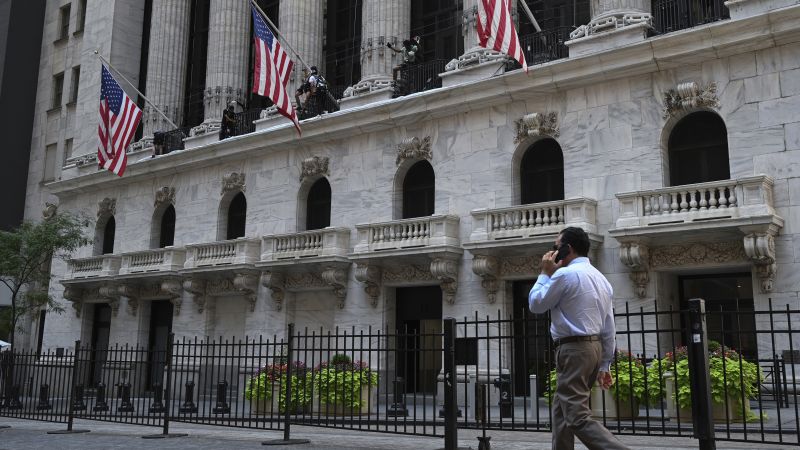Stocks experienced a significant decline on Friday following a disappointing jobs report that raised concerns about the weakening state of the US economy. The Dow fell 541 points, or 1.3%, while the S&P 500 and Nasdaq Composite also recorded losses of 2.1% and 3.2%, respectively. The Bureau of Labor Statistics data revealed that only 114,000 jobs were added in July, well below economists’ estimates of 175,000. Additionally, the unemployment rate rose to 4.3% from 4.1%, further indicating economic challenges.
The weak jobs report came after a series of negative economic indicators, including an increase in first-time jobless benefit applications and a decline in US manufacturing activity for the fourth consecutive month. These numbers point to a sharp deceleration in hiring, prompting concerns about a potential economic slowdown. Market strategist David Russell noted that the Federal Reserve, which has been focused on inflation, may now face challenges in addressing an economic slowdown if it falls behind the curve.
The Federal Reserve has indicated a shift in focus towards maintaining the strength of the labor market rather than solely focusing on inflation. Chair Jerome Powell emphasized the importance of a strong labor market and highlighted the potential risks of a significant downturn. The Fed also hinted at the possibility of a rate cut in September to address the current economic challenges. Traders are now anticipating three rate cuts this year, based on the CME FedWatch Tool.
In addition to economic concerns, investors have been closely monitoring Big Tech earnings reports, which have been a mixed bag. Companies like Microsoft, Apple, Amazon, and Meta Platforms have all reported their quarterly results, with varying outcomes. While some companies like Apple and Meta Platforms have seen stock price gains following their reports, others like Microsoft and Intel have experienced declines due to missing revenue or income expectations.
Overall, investors have been shifting away from the dominant Big Tech stocks that led the market to record highs earlier in the year. Instead, there is a growing interest in smaller stocks that could benefit from lower interest rates. This change in investor sentiment is driven by cooling inflation data and the potential for rate cuts by the Federal Reserve. The market is likely to continue fluctuating as investors navigate economic uncertainties and corporate earnings reports.


